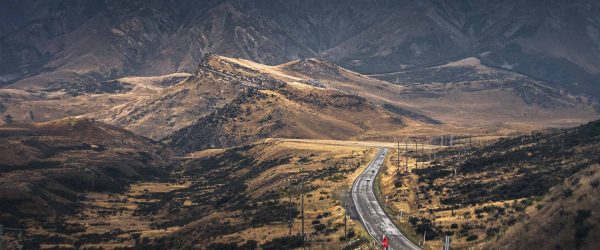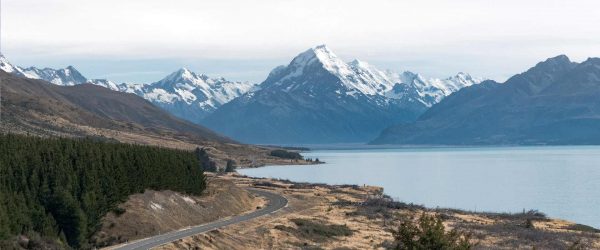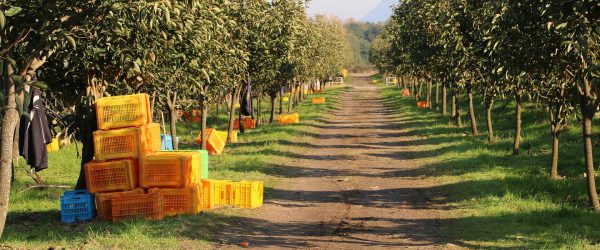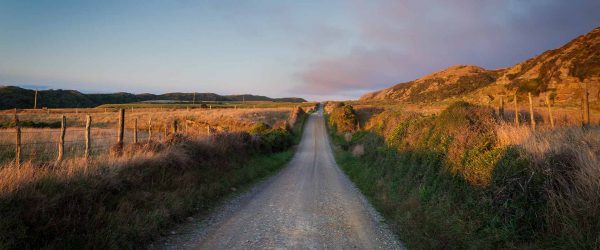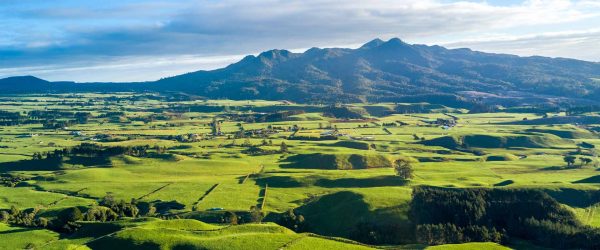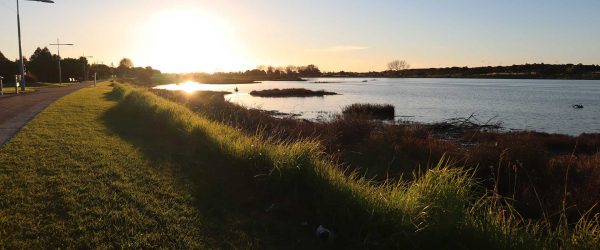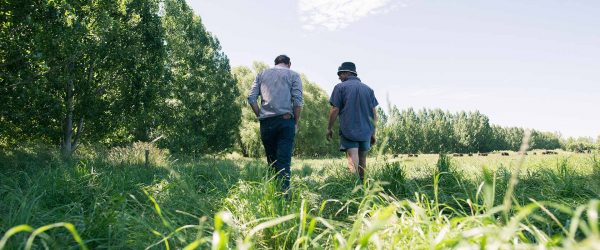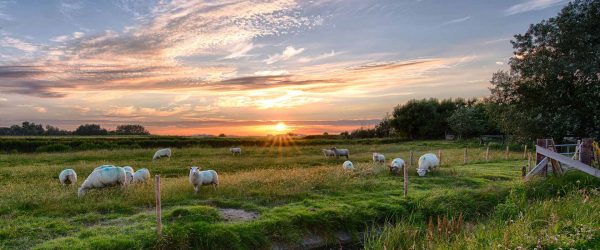Disaster Resilient Outcomes for Rural Aotearoa
Vision
Rural sectors, agencies and communities have access to tools to build resilience and develop opportunities.
Project description
Rural communities, economies, and infrastructure are vulnerable to a range of natural hazard risks, from earthquakes, tsunami and volcanoes, as well as extreme weather, wildfire and coastal hazards. Coupled with unique social, economic, cultural and political factors, this creates complex environments in which to build disaster resilience.
The project team are co-producing innovative solutions for enhancing the resilience of rural Aotearoa New Zealand; developing tools, strategies and resources specifically for rural communities, organisations and businesses.
This project is being carried out in three key work streams:
- Long-term recovery pathways in North Canterbury
Tourism and food security play a pivotal role in rural communities by developing social and economic opportunities, reducing disaster risk, and improving wellbeing. Recent disasters, including the Hurunui-Kaikōura-Marlborough earthquake sequence, provide a unique opportunity to explore the implementation of recovery strategies for the region in real-time. - Breaking out of ‘non-decisions’ for primary industries
Current policies guiding the recovery of primary industries after natural hazard events may have unintended long-term consequences, by preserving the status quo and locking in undesirable pathways. This workstream is gaining insight into recovery in rural settings and identifying opportunities to enable more resilient responses through three case studies; in Southland (drought), Marlborough (drought and earthquake) and Bay of Plenty (flood). - Protection and recovery from localised natural hazard events
This project seeks to identify the economic, environmental and wellbeing implications of localised natural hazard events. Our case study will investigate the recovery path of farmers and rural households affected by adverse events in the Hawke’s Bay region, to identify potential tools that could increase preparedness, reduce risk, and aid recovery for farmers, industry groups, and relevant agencies.
These research priorities have been developed in consultation with our stakeholders and partners in the primary sector.
Resource Outputs from this project
Tourists, tourism destinations and natural hazards
Drawing on learnings from tourism and disasters over the last 14 years, this brief examines preparedness alongside post-event response and recovery.
A model for understanding industry cluster development among New World wineries
S. Lembke, L. Cartier, J. Fountain, N. Cradock-Henry, L-P. Dana 2024 A model for understanding industry cluster development among New World wineries International Journal of…
Chinese tourists’ vulnerability to natural hazard events in New Zealand
Fountain, J., Cui, Q., Espiner, S. & Cradock-Henry, N. 2024 Chinese tourists’ vulnerability to natural hazard events in New Zealand Handbook on Crisis and Disaster…
Aotearoa New Zealand needs a unified food strategy
The state of our current food system and why we need a unified food strategy.
Food systems security and disaster recovery
An outline of food security issues that may arise following a disaster
Awareness to preparedness: A design-led approach to building resilience and readiness for the next Alpine Fault earthquake.
A case study of how to take people from hazard awareness to active preparedness.
Climate change adaptation through an integrative lens in Aotearoa New Zealand
How systems and sectors interact with existing and projected climate change stressors, and identification of critical constraints and opportunities.
Exploring the impacts of the Covid-19 national lockdown on outdoor recreationists’ activity and perceptions of tourism
Qualitative interviews reveal the lockdown period had a number of impacts with implications and directions for future research.
We’re all in this together? Community resilience and recovery in Kaikōura following the 2016 Kaikōura-Hurunui earthquake
Areview of existing social science research and new analysis of the impact of the earthquake and its aftermath on community resilience in Kaikōura.
Communicating natural hazard risks to Chinese visitors: a case study from New Zealand
Communicating potential risks to tourists prior to, and during, their journeys is important in helping visitors safely navigate the natural hazards they may encounter.
Creating value in Aotearoa New Zealand’s wine industry: opportunities to capitalise on ‘buying local’?
Small wineries experienced substantial negative impacts from the COVID-19 pandemic, which has significant implications for regional economies and New Zealand's reputation as a wine producer.
Introduction to the Kaikōura earthquake special issue
This special issue presents a collection of 12 papers on the 2016 Mw 7.8 Kaikōura Earthquake.
Tourism and food security in Queenstown.
Apse, M., Degarege, G., Fountain, J., Espiner, S., & Stewart, E. (2022) Tourism and food security in Queenstown. LEAP report #62. https://researcharchive.lincoln.ac.nz/handle/10182/15550
Guest editorial: Progressing understanding of risk, recovery and resilience in the global tourism industry
Fountain, J. & Wolff, K. (2022) Guest editorial: Progressing understanding of risk, recovery and resilience in the global tourism industry. Journal of Hospitality and Tourism…
The future of food tourism in a post-COVID-19 world: insights from New Zealand
Fountain, J. 2021. The future of food tourism in a post-COVID-19 world: insights from New Zealand. Journal of Tourism Futures, Vol. ahead-of-print No. ahead-of-print. doi:10.1108/JTF-04-2021-0100
Principles and process for developing participatory adaptation pathways in the primary industries
Nicholas A. Cradock-Henry, Paula Blackett, Justin Connolly, Bob Frame, Edmar Teixeira, Paul Johnstone, Anita Wreford; Principles and process for developing participatory adaptation pathways in the…
Flexible policy pathways for enabling climate change adaptation
Nicholas Cradock-Henry, Justin Connolly, Paula Blackett, Nick Kirk. Flexible policy pathways for enabling climate change adaptation MPI Technical Paper No: 2022/09. Prepared for Ministry for…
Presentation slides, Tourism & Covid-19 webinar
Dr Caroline Orchiston and Dr Jo Fountain, presentation, 'Tourism & Covid-19: Challenges and opportunities for rural communities' webinar, October 2020.
Tourism and Covid-19 – Opportunities and challenges for rural communities
How COVID-19, and debates about the future shape of tourism, bring opportunities as well as challenges for rural communities in Aotearoa New Zealand.
Increasing communities’ resilience to disasters: An impact-based approach
Davies TRH, Davies AJ. 2018. Increasing communities’ resilience to disasters: an impact-based approach. International Journal of Disaster Risk Reduction. 31:742-749. doi:10.1016/j.ijdrr.2018.07.026.
Characterising resilience in the wine industry: Insights and evidence from Marlborough, New Zealand
Cradock-Henry NA, Fountain J. 2019. Characterising resilience in the wine industry: insights and evidence from Marlborough, New Zealand. Environmental Science & Policy. 94:182-190. doi:10.1016/j.envsci.2019.01.015.
Transformations for Resilient Rural Futures: The Case of Kaikōura, Aotearoa New Zealand.
Cradock-Henry NA, Fountain J, Buelow F. 2018. Transformations for resilient rural futures: the case of Kaikōura, Aotearoa-New Zealand. Sustainability. 10(6):1952. doi:10.3390/su10061952
Social–ecological inventory in a postdisaster context: the 2016 Kaikōura earthquake, Aotearoa New Zealand
Cradock-Henry NA, Buelow F, Fountain J. 2019. Social-ecological inventory in a postdisaster context: the 2016 Kaikōura earthquake, Aotearoa-New Zealand. Ecology and Society. 24(3):9. doi:10.5751/ES-11075-240309.
The road to recovery: Reimagining Kaikōura after a natural disaster
This research critically analyses the process and stages of recovery for the Kaikōura tourism industry, with lessons for other rural tourist destinations facing natural hazard risk.
Psychological resilience, organizational resilience and life satisfaction in tourism firms: insights from the Canterbury earthquakes
Prayag G, Spector S, Orchiston C, Chowdhury M. 2020. Psychological resilience, organizational resilience and life satisfaction in tourism firms: insights from the Canterbury earthquakes. Current…
Recovery, risk and resilience: Post-disaster tourism experiences in Kaikōura, New Zealand
Fountain J, Cradock-Henry NA. 2020. Recovery, risk and resilience: Post-disaster tourism experiences in Kaikōura, New Zealand. Tourism Management Perspectives. 35:100695. doi:10.1016/j.tmp.2020.100695.
Project AF8: developing a coodinated, multi-agency response plan for a future great Alpine Fault earthquake.
Orchiston C, Mitchell J, Wilson T, Langridge R, Davies T, Bradley B, Johnston D, Davies A, Becker J, McKay A. 2018. Project AF8: developing a…
Wine tourism in New Zealand
J.Fountain, Wine tourism in New Zealand. In Compés, Raúl & Szolnoki, Gergely. (2021). Sustainable and innovative wine tourism. Success models from all around the world.
Agrifood tourism, rural resilience, and recovery in a postdisaster context: Insights and evidence from Kaikōura-Hurunui, New Zealand
Fountain J, Cradock-Henry N, Buelow F, Rennie H. 2021. Agrifood tourism, rural resilience, and recovery in a postdisaster context: insights and evidence from Kaikōura-Hurunui, New…
Probabilistic volcanic impact assessment and cost-benefit analysis on network infrastructure for secondary evacuation of farm livestock: A case study from the dairy industry, Taranaki, New Zealand.
Wild AJ, Wilson TM, Bebbington MS, Cole JW, Craig HM. 2019. Probabilistic volcanic impact assessment and cost-benefit analysis on network infrastructure for secondary evacuation of…
Canterbury AF8 Risk Profiles: Alpine Fault Magnitude (AF8) science Summary for Canterbury
A summary of previous and ongoing scientific research projects related to an Alpine Fault Mw 8.0 (AF8) earthquake event in the Canterbury region.
Social–ecological inventory in a postdisaster context: the 2016 Kaikōura earthquake, Aotearoa-New Zealand
Developing a shared understanding of changes that had taken place in the community.
